Seoul President Hotel - 22 November, 5.00 pm
Good afternoon,
I have ended a week-long visit to the Republic of Korea in my capacity as Special Rapporteur on the human rights situation in the Democratic People’s Republic of Korea. I would like to thank the Government of the Republic of Korea for facilitating this visit, which is the first that I conduct to North East Asia since my appointment in August this year. I would also like to thank the UN Office of the High Commissioner of Human Rights in Seoul for their assistance. I plan to travel to Japan tomorrow to start the second leg of this regional trip. I am scheduled to report to the Human Rights Council in March 2017.
During this visit I had the opportunity to exchange with Government officials from the Ministry of Foreign Affairs, the Ministry of Unification and the Ministry of Justice. I also met with the National Human Rights Commission of Korea and the Korea Institute for National Unification. Some of these meetings were conducted jointly with the Group of Independent Experts on accountability who is in Seoul this week and whose report will also be presented to the Human Rights Council in March. Among the issues that were discussed is the status of implementation of the North Korea Human Rights Act that was passed on 3rd March 2016.
In addition to official meetings I interviewed men and women who have left the DPRK, including some who arrived in recent months. I met with members of families who continue to suffer the consequences of involuntary separation caused by displacement during the Korean War, abduction, or escape from the DPRK. I also discussed the human rights situation in DPRK with various civil society organizations and with members of the diplomatic community in Seoul.
I was moved by the testimony of people who left the DPRK who are emotionally scarred by that long and complex journey. Talking to these victims has allowed me to understand some of the human rights violations that motivate their decision to leave and the challenges that they go through as they brave restrictions on freedom of movement and make the journey out of the country. Most women were victims of human trafficking networks and some have also left children in China born to Chinese fathers. The risk of forced repatriation and detention in the DPRK for a person who attempts to leave the country without permission was also brought to my attention in various testimonies. Rampant corruption in various levels of public administration was described to me as a major obstacle to the fulfillment of rights such as adequate food, health and education.
It was remarkable that these people, who have resilient personalities, were well aware of their rights. Despite all the challenges that they have been through, they now look forward to the future.
In addition to these victims I spoke to people who continue to demand that the DPRK authorities respond to allegations concerning the abduction of members of their families, and others who seek to be reunited with, or at least receive information on relatives in the north whom they have not seen since the Korean War. Having worked with victims of enforced disappearances in my own country Argentina for a long time, the importance of recognizing the suffering of family members who are forcibly separated from their loved ones cannot be overstated. The persistent refusal of DPRK authorities to cooperate in determining the fate of the disappeared continues to impede efforts to locate missing individuals. The escalation of tensions in the Korean Peninsula has also brought political dialogue on these issues to a standstill and it has not been possible to organize any family reunion events since October 2015.
During this visit, I also had productive meetings with civil society organizations that are dedicated to improving human rights in the DPRK. Some of these groups continue to document cases and explore accountability mechanisms for gross and systematic human rights abuses. In this respect, the resolution recently passed by the UN General Assembly is most relevant in reaffirming the importance of accountability, and the presence here in Seoul of the Group of Independent Experts on accountability, with whom I work in close cooperation, strengthens the work of those civil society organizations.
Other groups that I met in this visit have developed further strategies to protect human rights in DPRK through the enhancement and expansion of humanitarian and human rights initiatives within the DPRK. They push for more engagement with the authorities in order to achieve concrete results on the ground.
All civil society groups deserve support from this Special Rapporteur and accountability measures must be discussed at the same time as cooperation with the Democratic People’s Republic of Korea is sought.
As I travel to Japan I look forward to continuing these conversations which will inform my report to the Human Rights Council in March 2017.
Once again, let me thank all those with whom I met during this visit and I look forward to working with them.
Let me now open up the floor to any questions.
